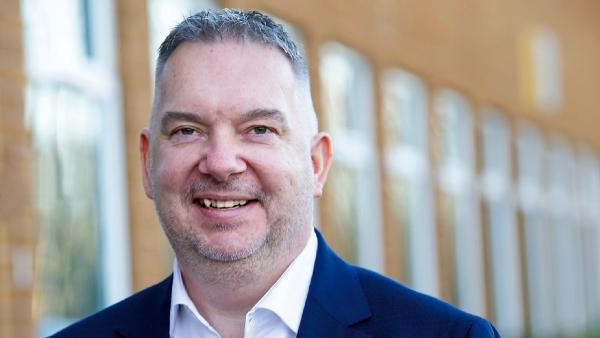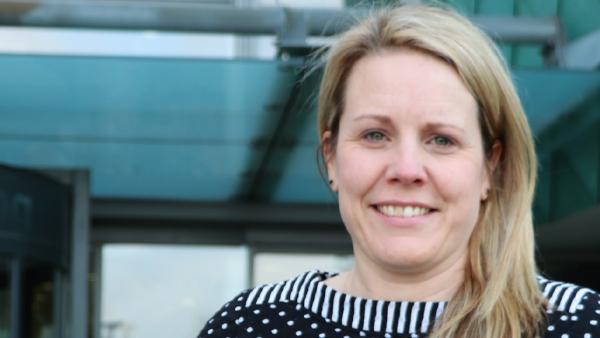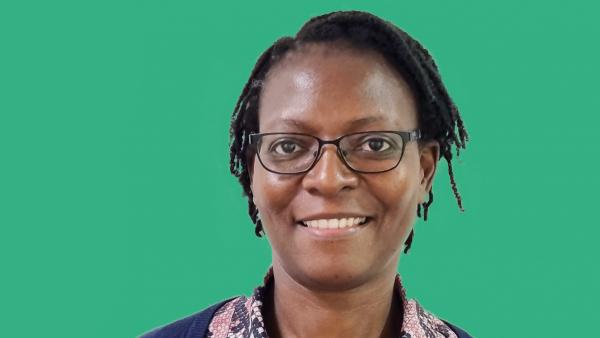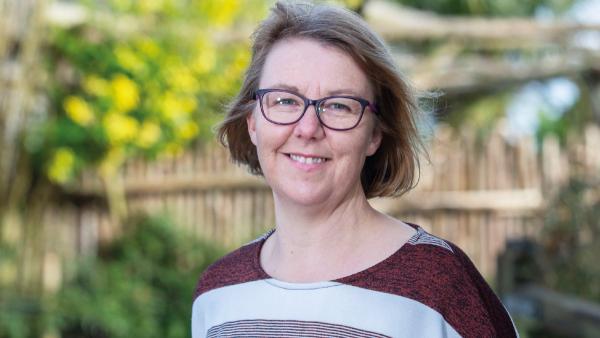Integrated care systems allow physios to showcase their skills and ideas and find new career opportunities. Four physios leaders share with Tamsin Starr tips on where to start

This July marks the deadline for England to transition to integrated care systems (ICS), bodies responsible for planning health and care services to meet population needs. This is an exciting time for physios, presenting collaborative opportunities and the potential to have a strategic voice across the ICS in new senior allied health professional roles.
The 42 regional ICSs bring together partners in health and social care planning and delivery, with a greater focus on prevention, addressing social and economic factors affecting a person’s health to reduce inequities.
ICS and opportunities for physiotherapy
They play to the strengths of allied health professionals, with the emphasis on joined-up solutions that cross professional boundaries. And there are a growing number of physiotherapists in senior roles within the new structures – each ICS already has, or will be part of developing, a regional AHP council and ICS AHP council. Equally the ICS AHP faculty is set to help career progression and recruitment. While ‘long overdue’ AHP workforce plans are being developed by trusts and ICSs.
ICSs across the country are at varying degrees of maturity presenting opportunities for physios to influence them as they develop. Frontline spoke to four physiotherapists in ICS leadership positions, who share their insights on how to get involved, and bring a strong physio voice to shaping healthcare where you are.
Interim chief executive designate of the Shropshire, Telford and Wrekin Integrated Care Board Simon Whitehouse started his career as a physiotherapy assistant. Having worked clinically for several years, rising to senior MSK physiotherapist, he moved into strategy and policy. He was an employment relations officer in the CSP before working on the introduction of the NHS Agenda for Change pay system. A series of increasingly senior NHS roles followed, including becoming the chief executive of

two clinical commissioning groups in Cheshire. ‘Today I’m asking the same questions I did as a clinician, which is what impact are we having and what positive difference are we making to people’s lives? It has just moved from the individual patient to the population. Clinical training puts you in a great place to explore career options and different opportunities.’
Get involved
A drive to make that positive difference to the system, the workforce and the population as a whole fuelled his career momentum, but he believes physios’ talent and flexibility means they are well qualified for such success. He has three tips for developing and standing out – get involved, scan for opportunities and have the confidence to take some risks. ‘One of the things that made a genuine difference for me was getting involved as a CSP steward early on in my career, where you are in a space exposed to the senior management in your trust and get fantastic support and training from the employment relations team at the CSP. I’d also encourage people to really explore what you want to be doing and what interests you – the clinical experience and training can be a real springboard into many differing roles.’
He is passionate about the opportunities ICSs offer in strengthening the AHP voice, influencing system design and identifying solutions that lead to the best outcomes for patients.
Physios are in a great place to lead and coordinate on what integrated care should look like, as well as delivering it, he says.
And they don’t have to be within the ICS structure to help shape services. In this ‘development phase’, there are unfolding workstreams on areas from MSK to ageing populations and tackling frailty to get involved with. Senior leaders on your local AHP council and clinical leads are open to hearing your expert views on what works best and helping implement solutions. ‘I’d welcome physios knocking on my door to show me how they are working differently to tackle unwarranted variation in patient outcomes through working differently, or across the community and secondary care interface or NHS and social care boundaries,’ says Whitehouse.
Transforming the delivery of care
Most senior AHP roles in the integrated care system are interim – and three trailblazers are out to prove that AHPs need to be a permanent fixture at the decision-making table.
Coventry and Warwickshire interim ICS chief AHP Clare Pheasant says: ‘It’s about ensuring people understand the skills set and the roles AHPs can play – showcasing how using them effectively can transform the delivery of care for patients in

communities. AHPs in leadership positions can do this by putting in a respectful challenge when a pathway model is being worked up that is missing elements of a multi-disciplinary approach, for example. Those decisions are key to shaping systems.’
Work is underway on what clinical professional leadership in the ICS structure should look like, so this is the time to strengthen the AHP voice. ‘AHPs need to engage now as we have a huge part to play in shaping a multi-professional clinical leadership offer at system level,’ says Pheasant.
Being open to change is a theme with Pheasant, who acts as a conduit between national and regional teams and local provider organisations in her ICS role. ‘In these kinds of AHP leadership roles, there is so much opportunity and freedom to get an effective oversight of opportunities and take on the challenge of how you can make them a success.’
Qualifying in 2001, Pheasant previously worked in clinical roles for 14 years before moving into a general operational role, followed by a step up to AHP lead for University Hospitals Coventry and Warwickshire NHS Trust. She credits coaching – arranged via the NHS Leadership Academy website – with helping her make the transition.
‘It gave me the confidence to interact with very senior people, and I still use things I talked about with my coach in my work today.’ Mentors and coaches who are working in areas you are interested in are also available through the CSP mentoring scheme. While professional bodies and clinical networks can link you in to strategic work.
‘Doing a leadership qualification is also beneficial when you move into these roles,’ she advises. ‘But as a first step look, make it your business to find out what’s happening in your organisation or system that you can get involved in. Be prepared to step outside your current field of work to get experience of other professions and other specialties.’
Step up and show your value
Interim chief AHP at South Tees, NENC AHP council deputy chair Ruth Mhlanga agrees education is pivotal. She says of her postgraduate course in healthcare leadership: ‘It allowed me to not only see the bigger picture and become more

compassionate about issues, but look at myself as a leader for the first time. That made me a better clinician, and a better manager. And I’ve always stayed curious.’
She started raising her own profile and that of her new strategic approach with small-scale change, introducing intentional rounding where healthcare professionals carry out regular patient checks using a standardised protocol to address any issues. ‘Look at how you can benefit patients with a multidisciplinary approach and implement a team-wide change,’ she advises. Approaches could include contacting your quality improvement or strategic team, engaging in platforms like Future NHS, Fuller Stocktake and on interactiveCSP discussions. Keep an eye on the big think tanks like Health Foundation and King’s Fund to see what innovation can be applied locally. These are also good ways to respond to calls for input on projects that are launching. ‘It doesn’t have to be big, but it must show your value.’
Mhlanga is a role model for taking leaps of faith, volunteering for multiple secondments that led to promotions from head of physiotherapy to professional lead. When her chief AHP stepped down she admits she ‘waited a few months to see if someone more experienced would take over’ before putting herself forward.
Physios often undersell ourselves and we have to work to tackle imposter syndrome.
Relationships have always been key to her career, not only in terms of achieving change – ‘you can’t progress in isolation’ – but in positioning herself. ‘By sharing the changes I’d brought in and my profile as a team player I started to build relationships, which is key to influencing but needs hard work over time.’
Put yourself forward
One of the areas that most excites Dr Sarah Elliott, AHP strategic workforce lead for Kent and Medway CCG, is the chance to develop ‘long overdue’ AHP workforce plans. ‘We are very guilty of crisis management in the NHS, we now have the

opportunity to forward plan based on a deep dive into the data and staff surveys. I’m interrogating not just pathways in to careers but when and why people are leaving trusts or the NHS as a whole. You lose sight of investing in staff when you’re in crisis mode which we know has led to a constant rollercoaster of vacancies.’
Prior to this role, Elliott had a long clinical career specialising in critical care, and gained a consultant position at Medway Maritime Hospital. She enjoyed a portfolio career including time as a head of therapies, honorary lecturer at the University of Brighton and as a principle investigator on research trials. A passion for education led to Elliott completing her master’s degree and doctorate on practice education. A secondment opportunity followed in May 2021 as a clinical education improvement fellow, delivered in association with Health Education England, Canterbury Christchurch University, Florence Nightingale Foundation and the Council of Deans of Health.
I loved critical care and didn’t really want to leave but I got to a point where I wasn’t developing or challenging myself.
Elliott says the fellowship, which explores AHP practice placement sustainability, gave her the opportunity to work at a system and strategic level and alongside long-arm bodies.
‘It was the best career move I ever made,’ she admits.
While she firmly believes the new raft of senior AHPs roles in ICSs are not only giving physios a voice, but are making AHP careers more attractive and diverse, she insists this comes with a certain responsibility. ‘I’ve been in post for just three weeks and am already planning student placements that will encompass both research and leadership. We need to both role model and expose AHPs early to those four pillars of practice, to grow our future clinicians and leaders.’ And when it comes to making those career moves, Dr Elliott says being bold pays off. ‘Don’t worry about cold calling or emailing a new contact. Many people will reply, and recommend someone else to get in touch with – suddenly you have a wonderful little black book.’
You not only have nothing to lose, but no time to wait, as Ruth Mhlanga says: ‘The ICSs are still forming and are open to ideas. We are special as physios, we are flexible, adaptable, highly skilled and we can do anything if we put our minds to it. So go out there and go and conquer the world – because we can.’
Number of subscribers: 1
